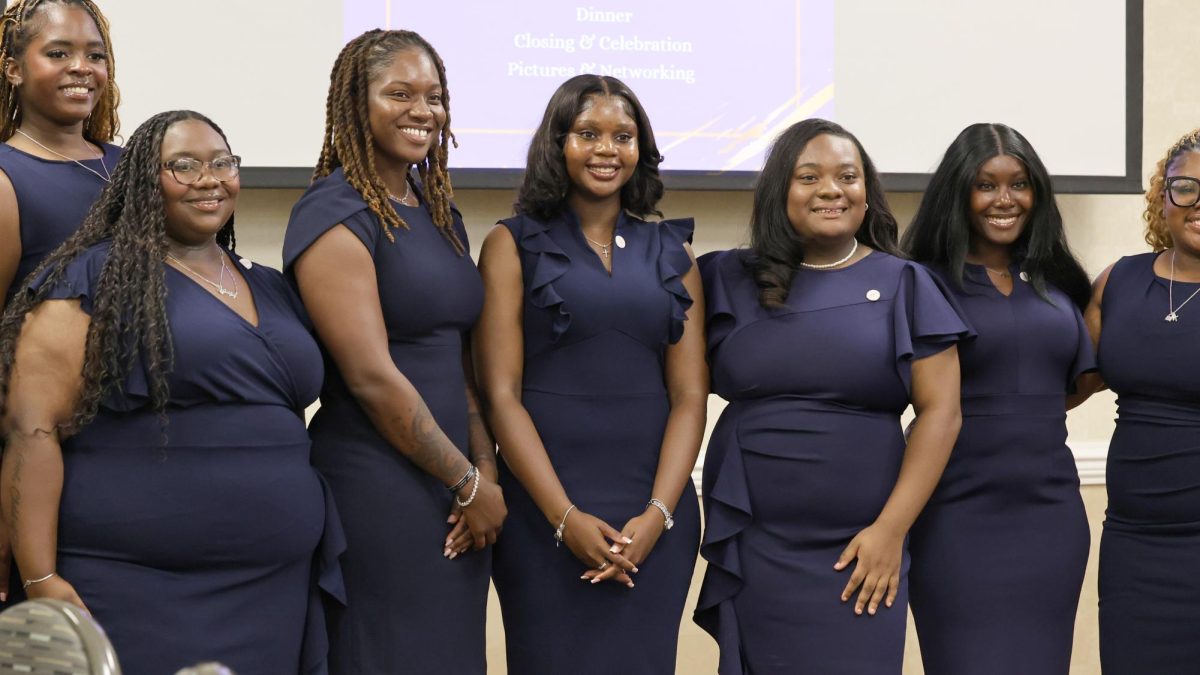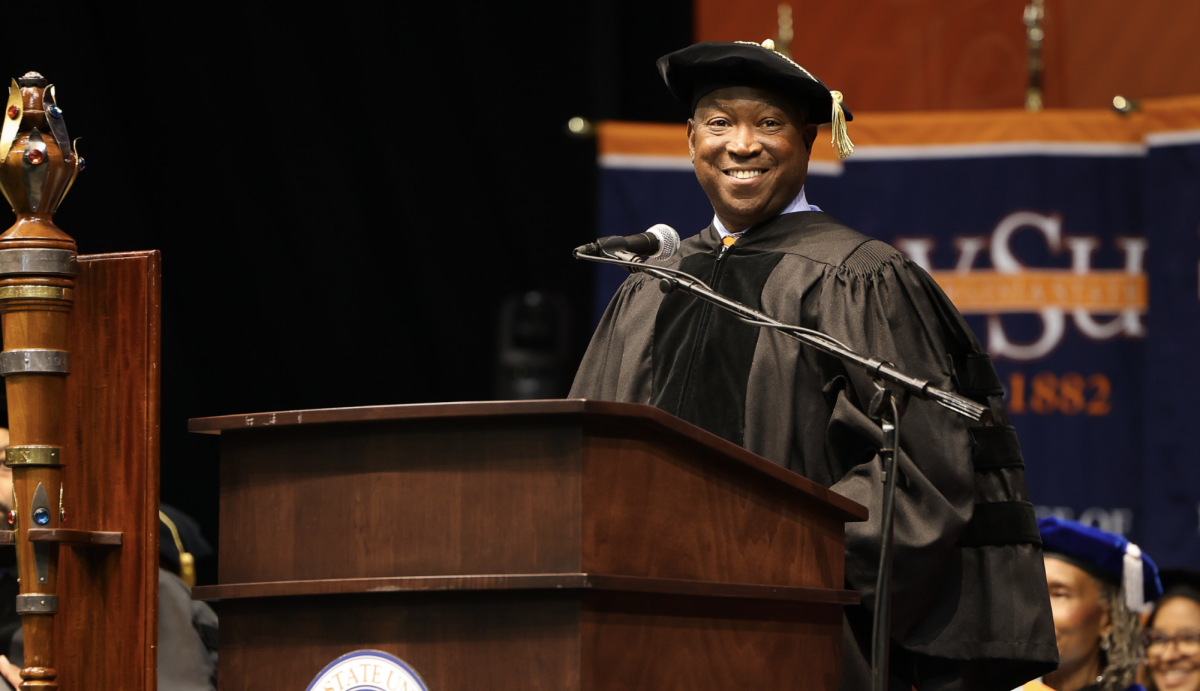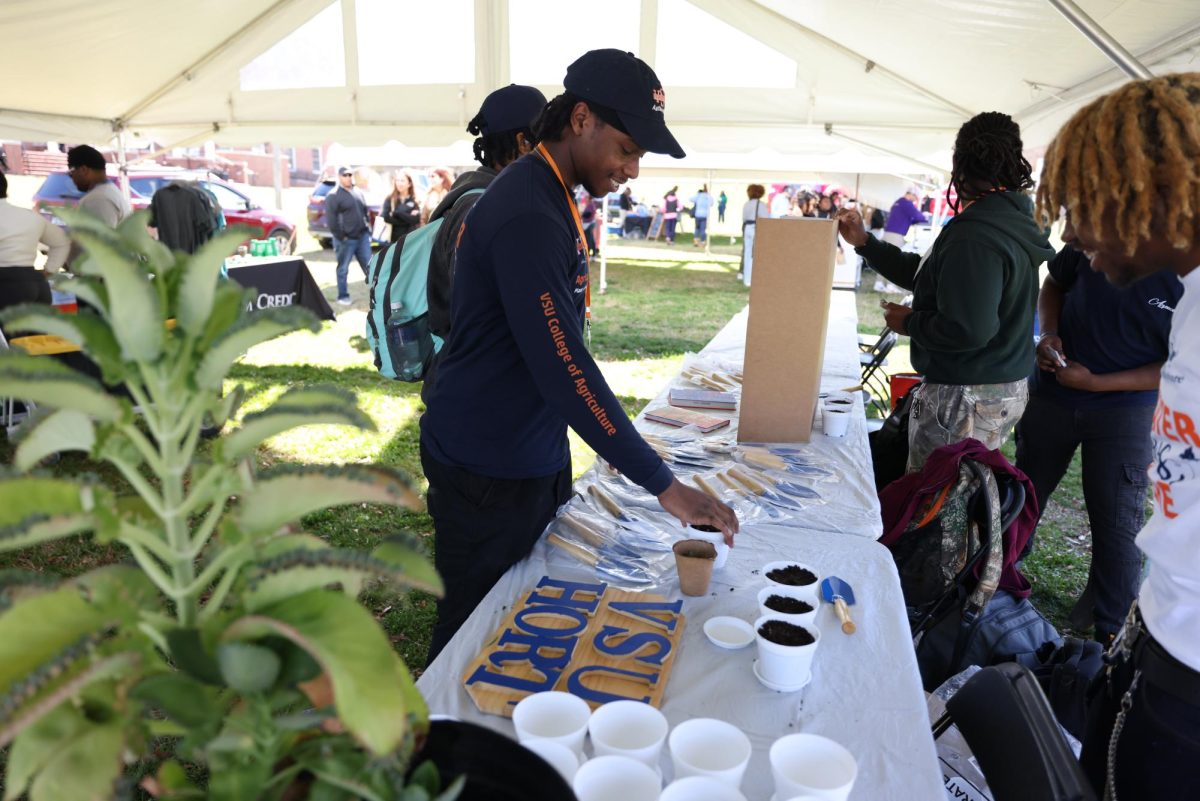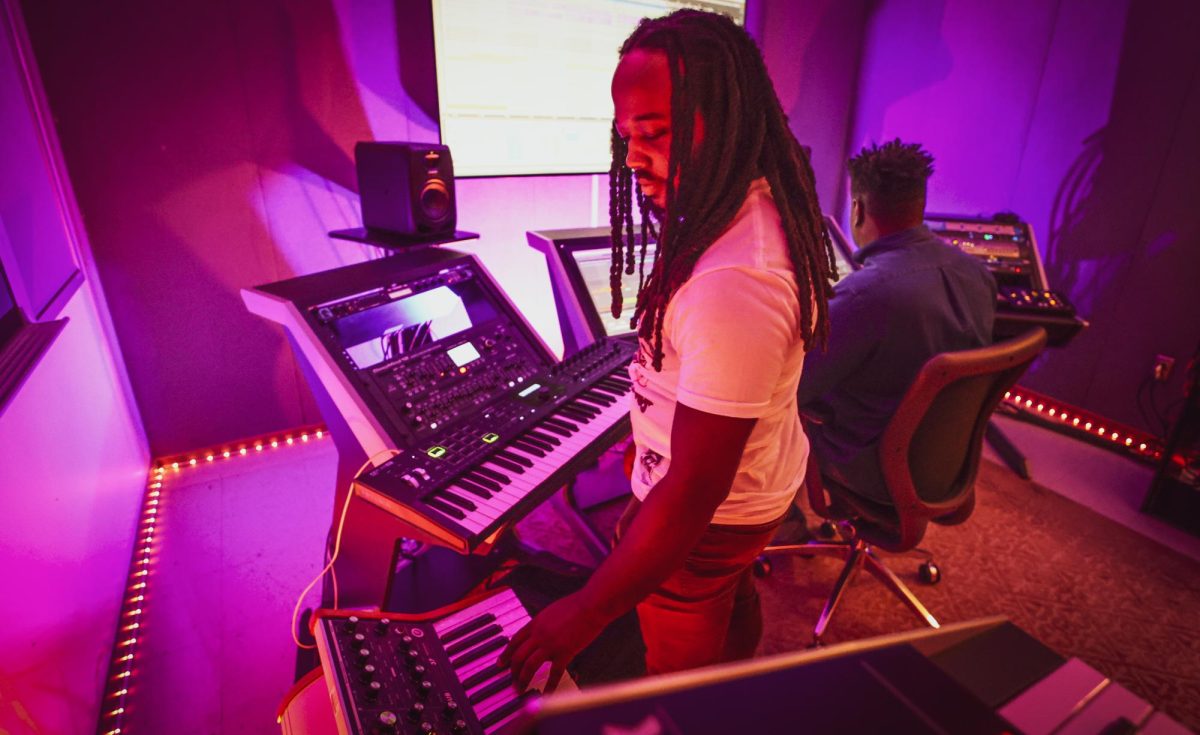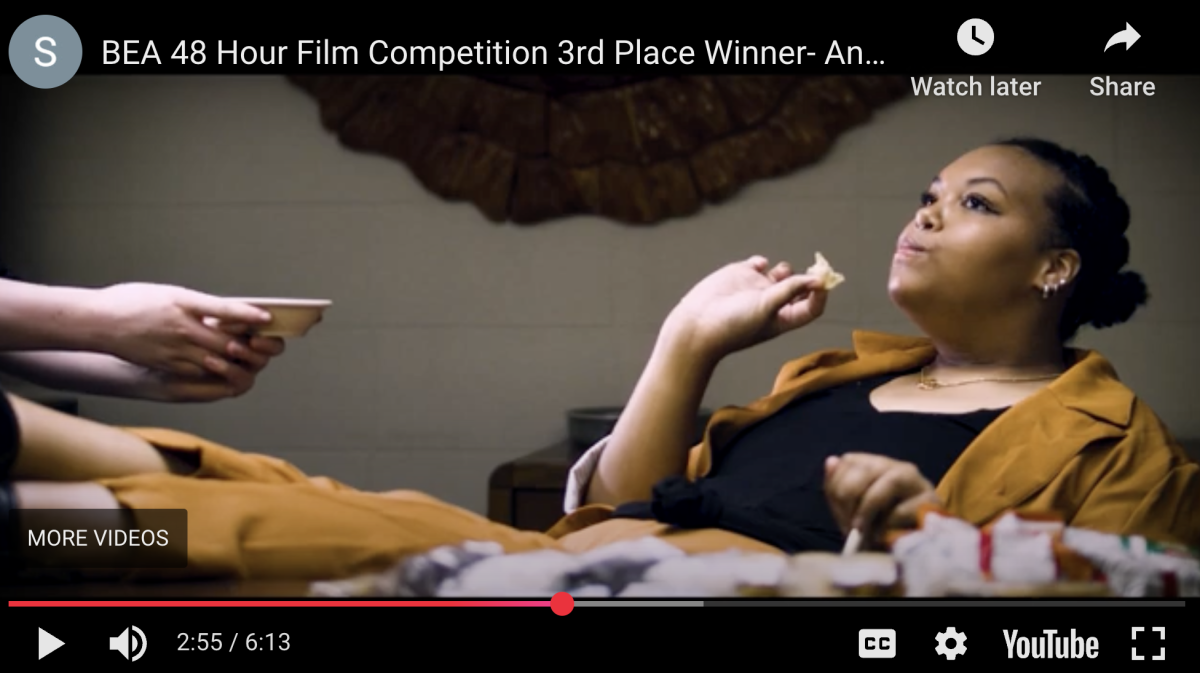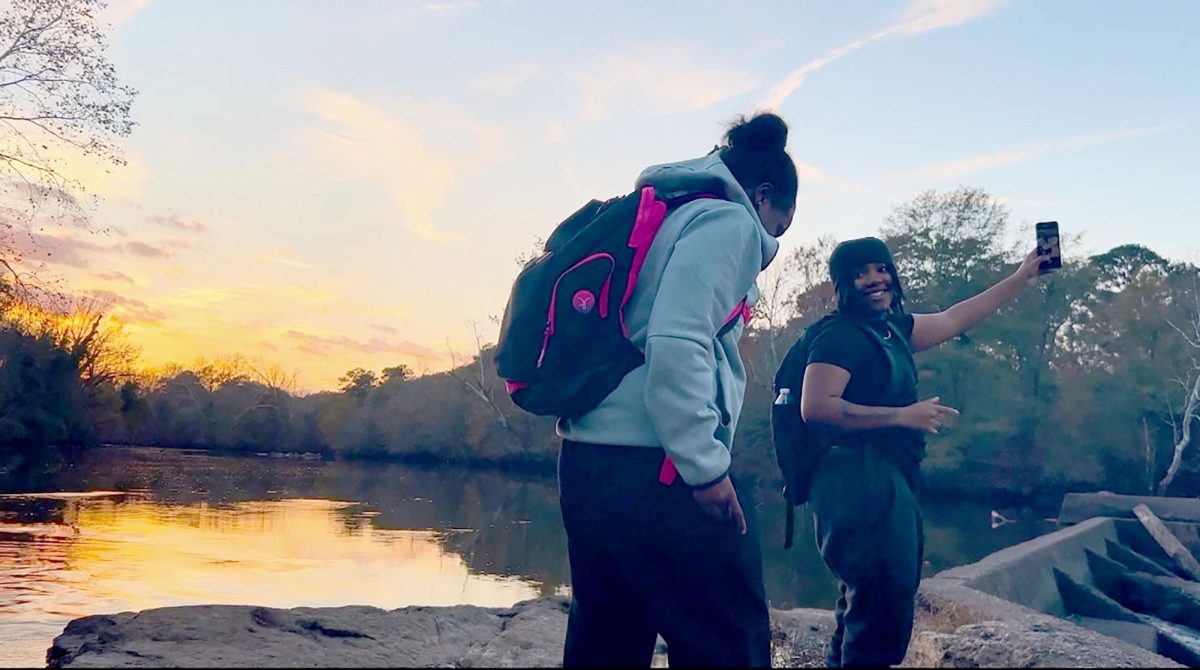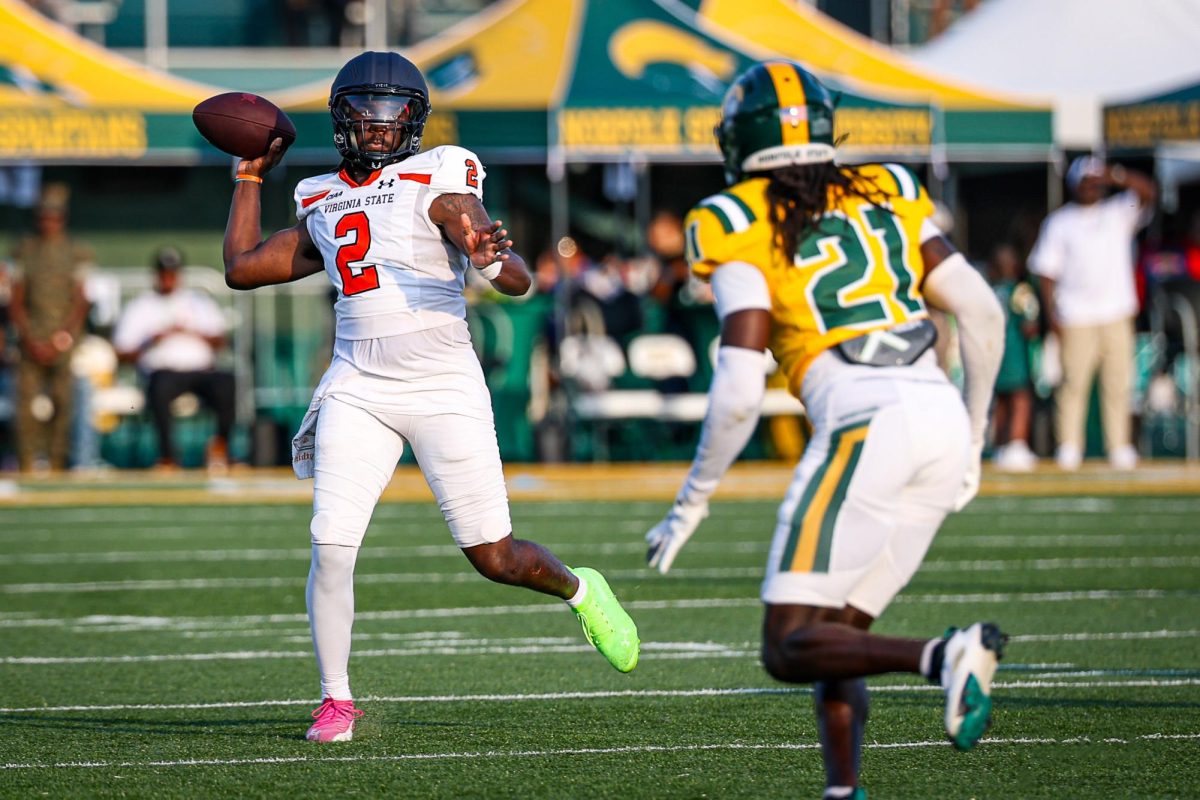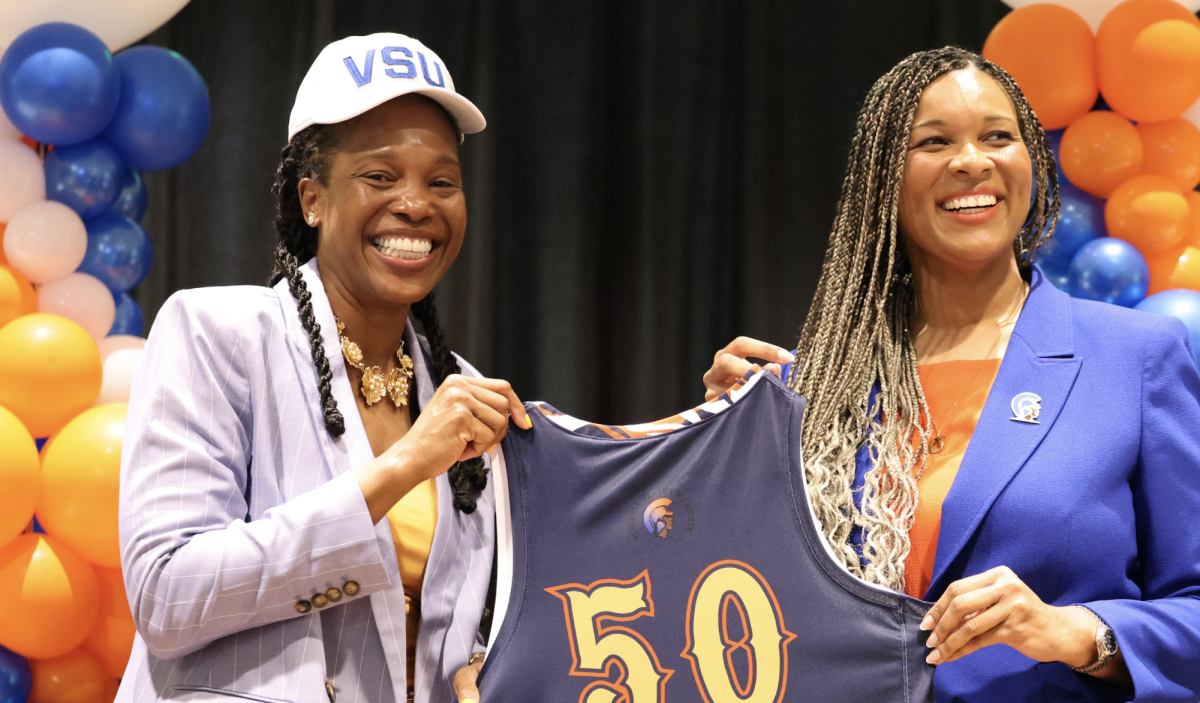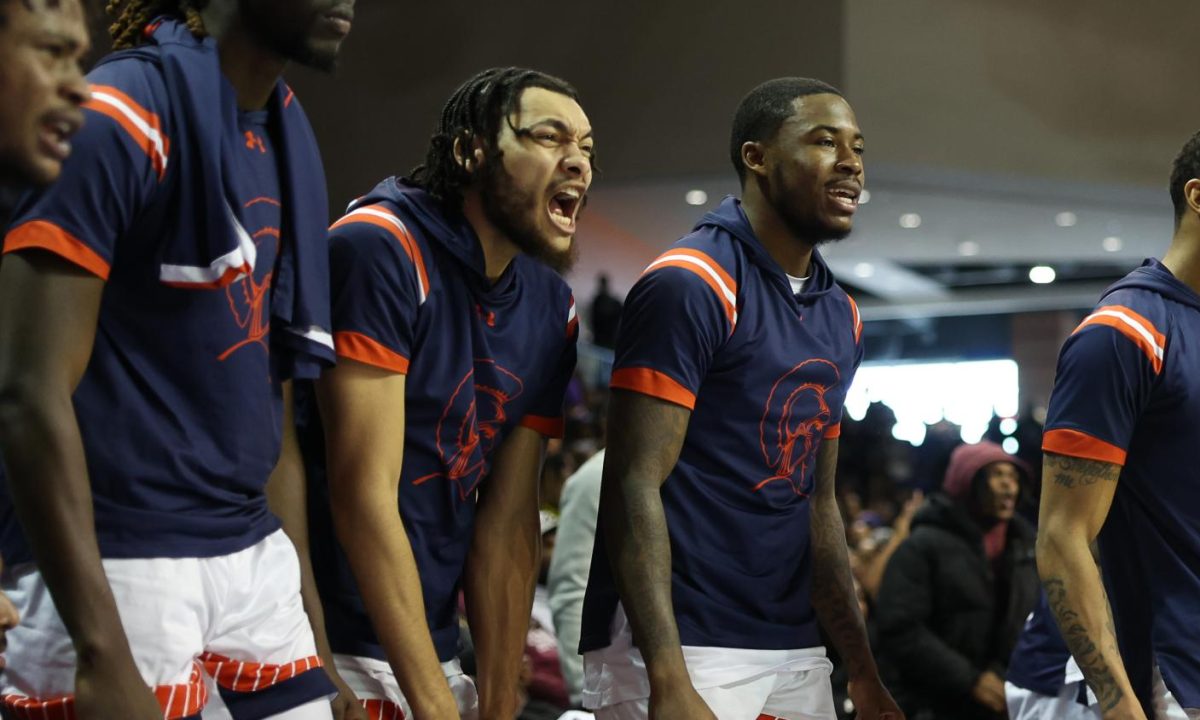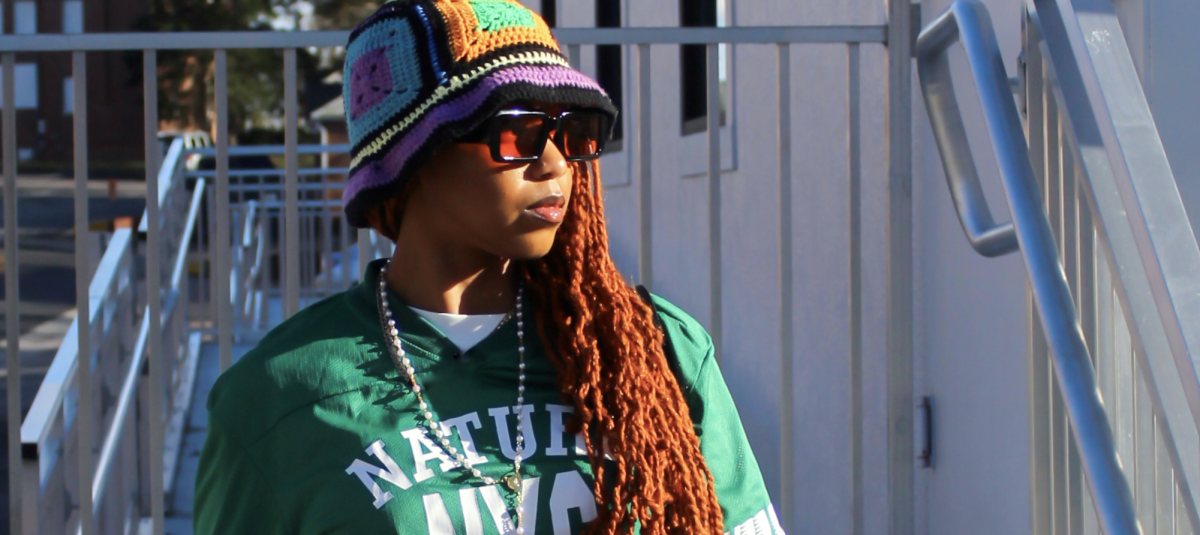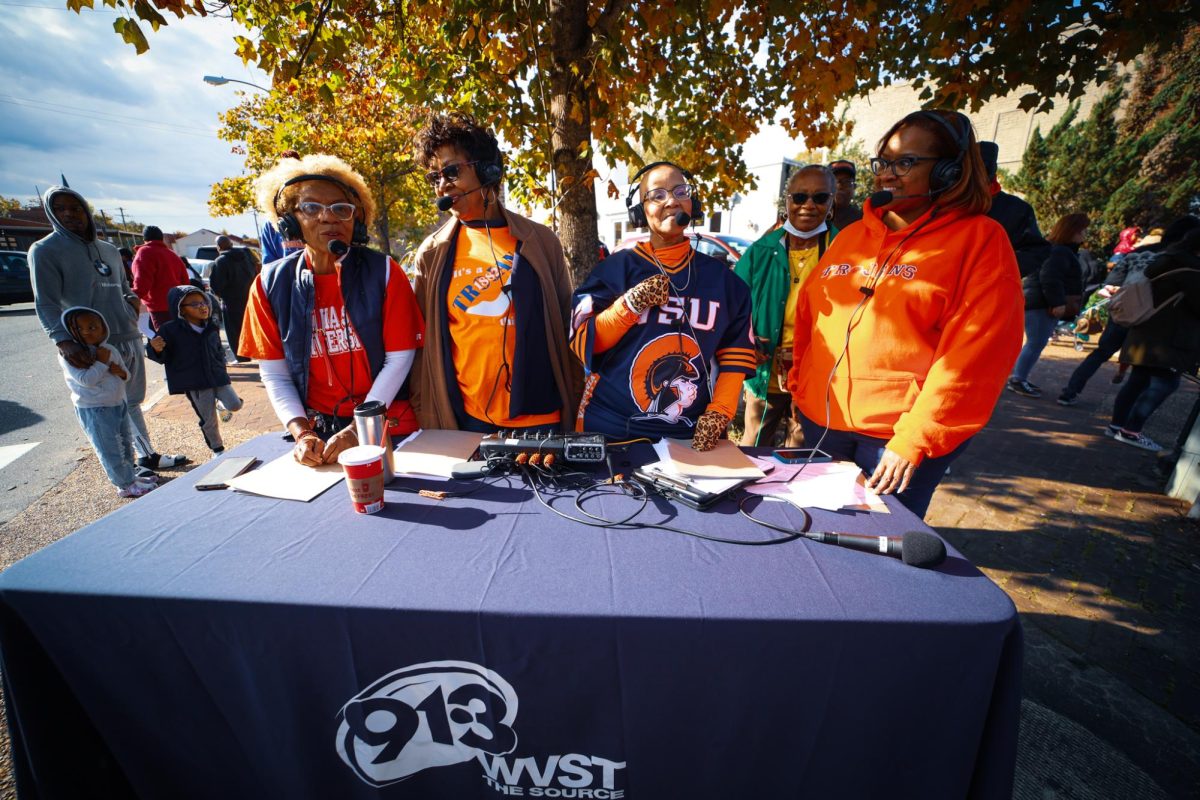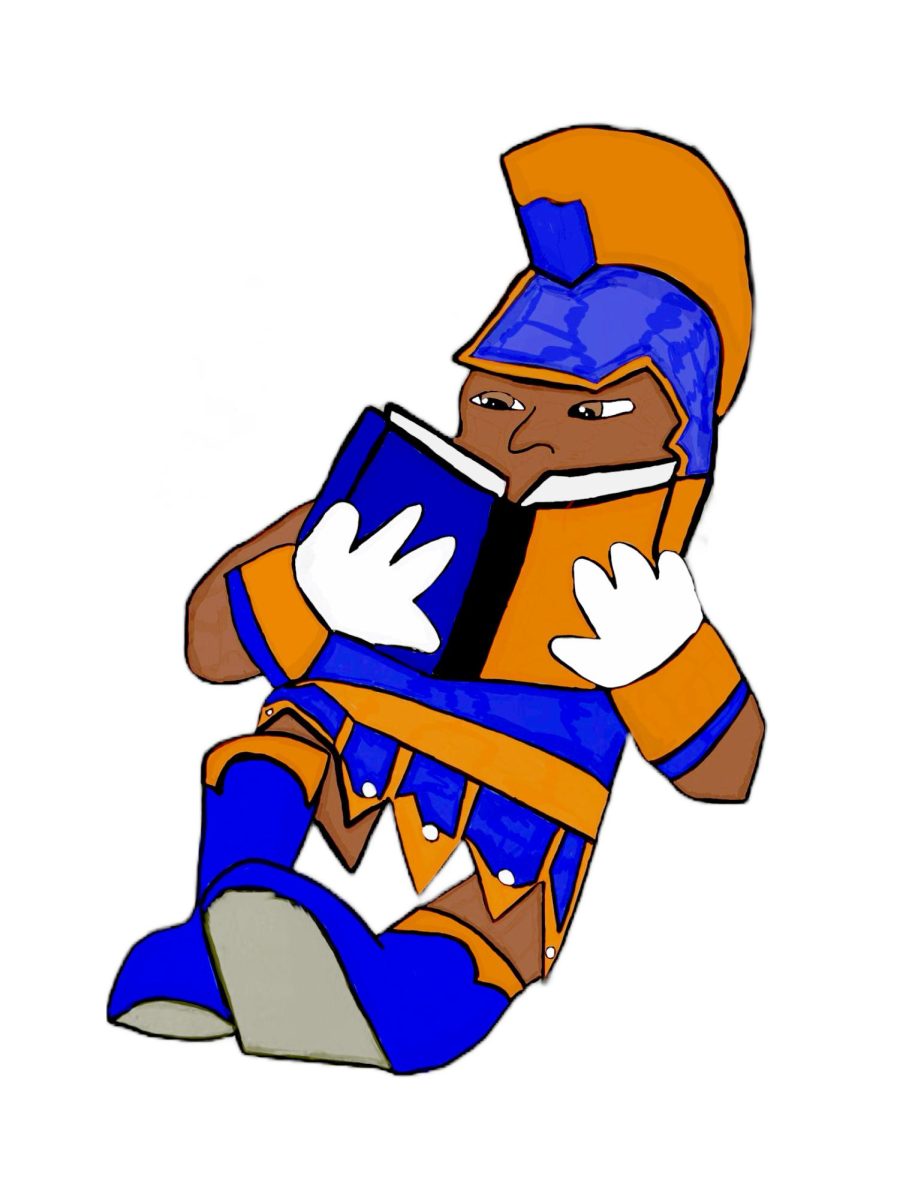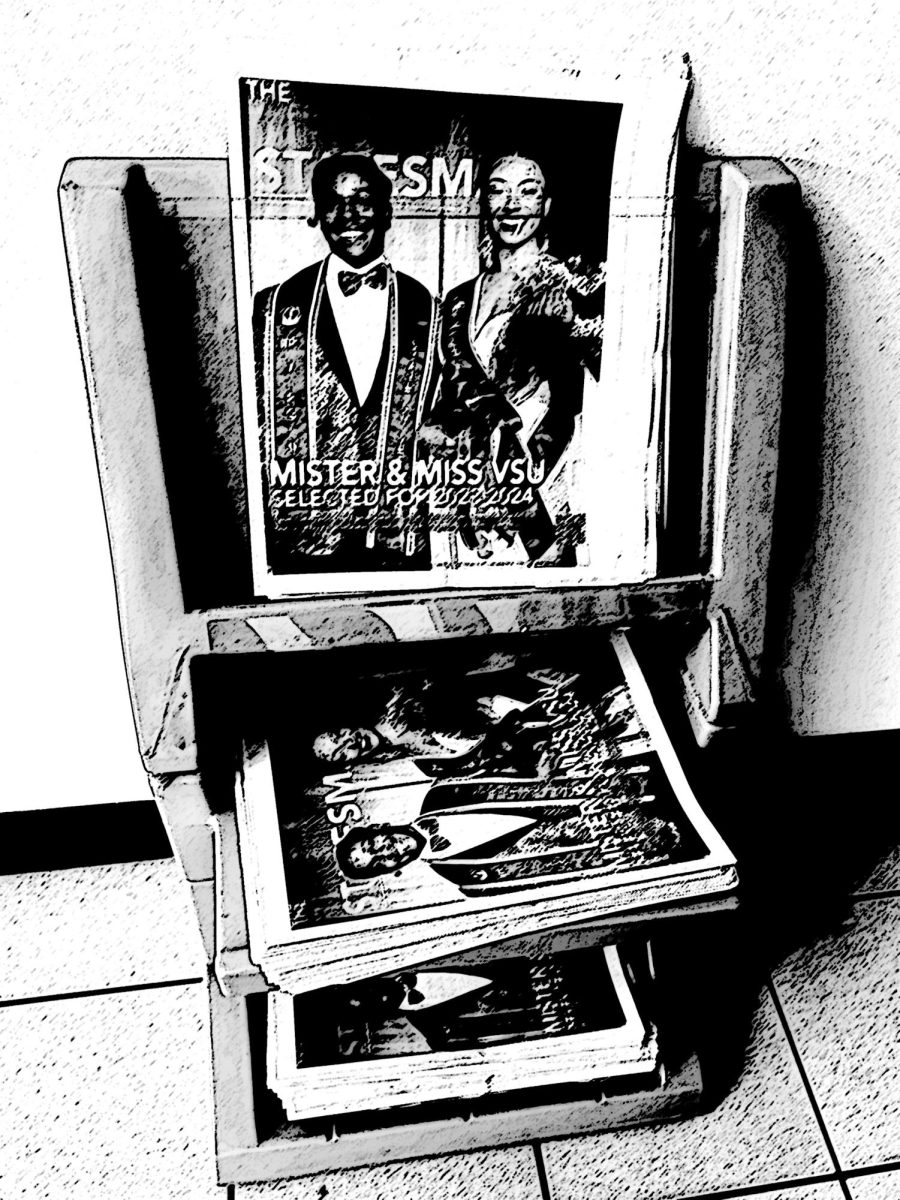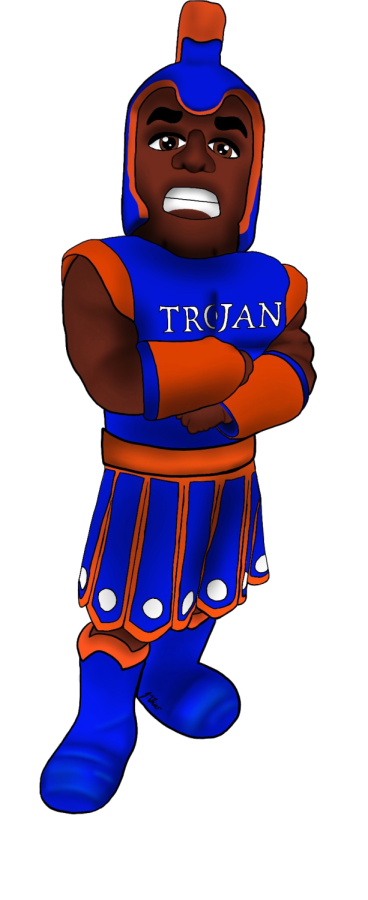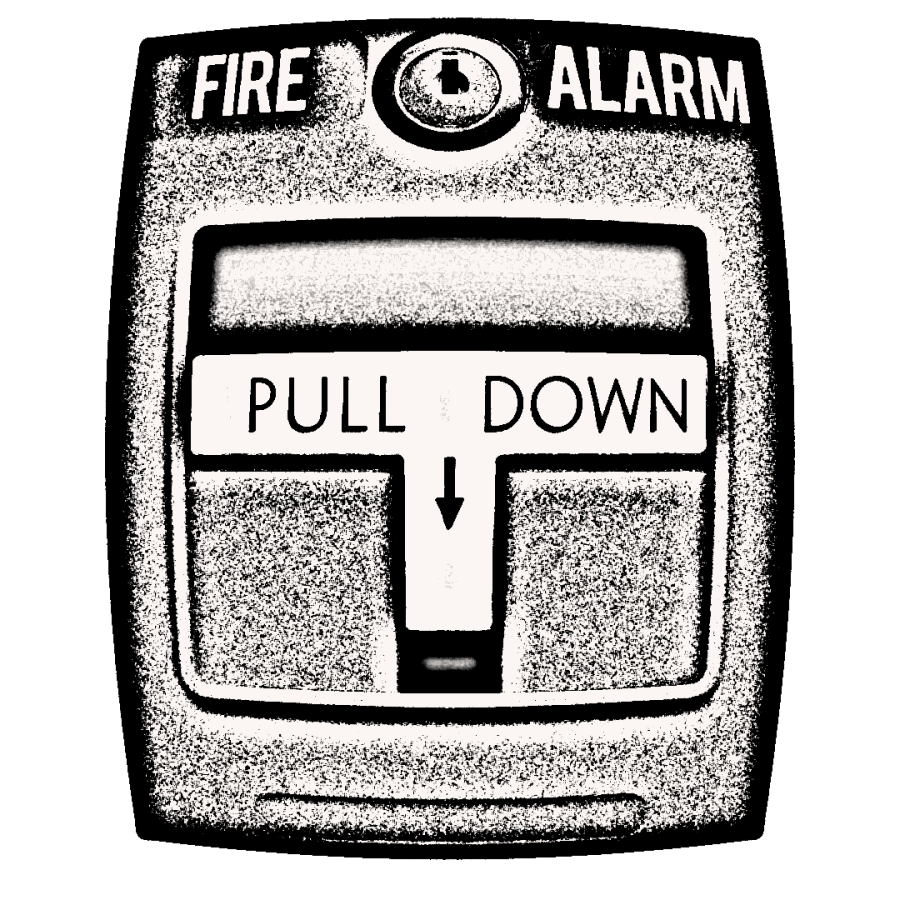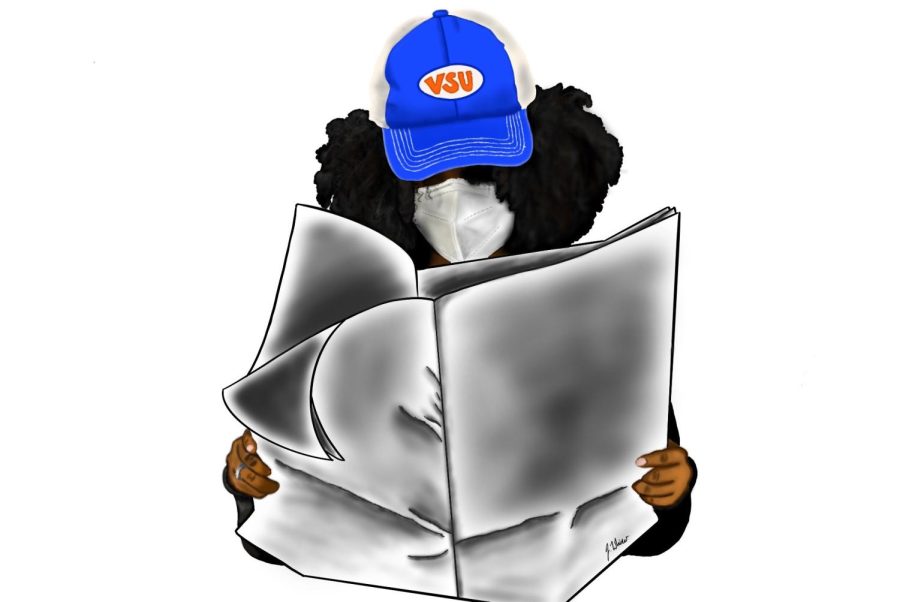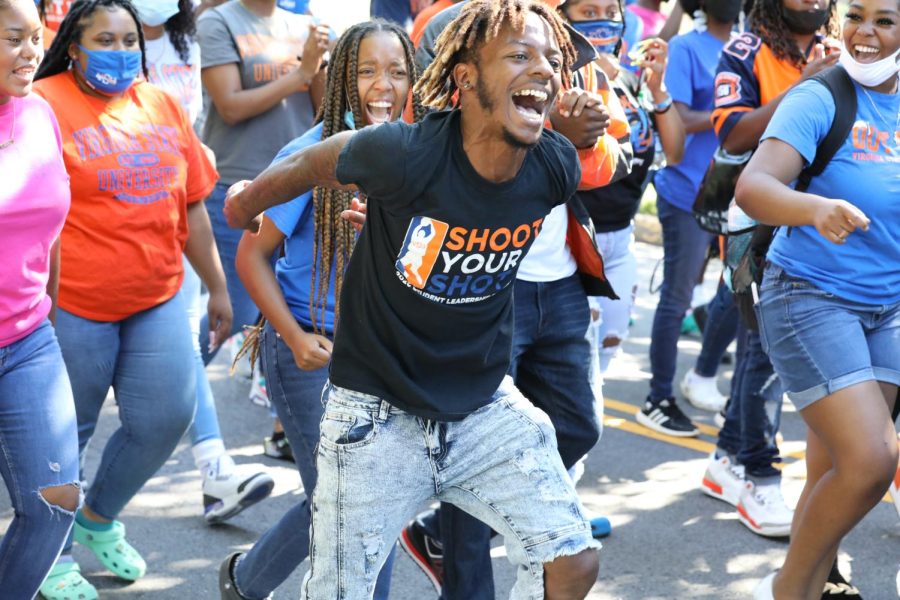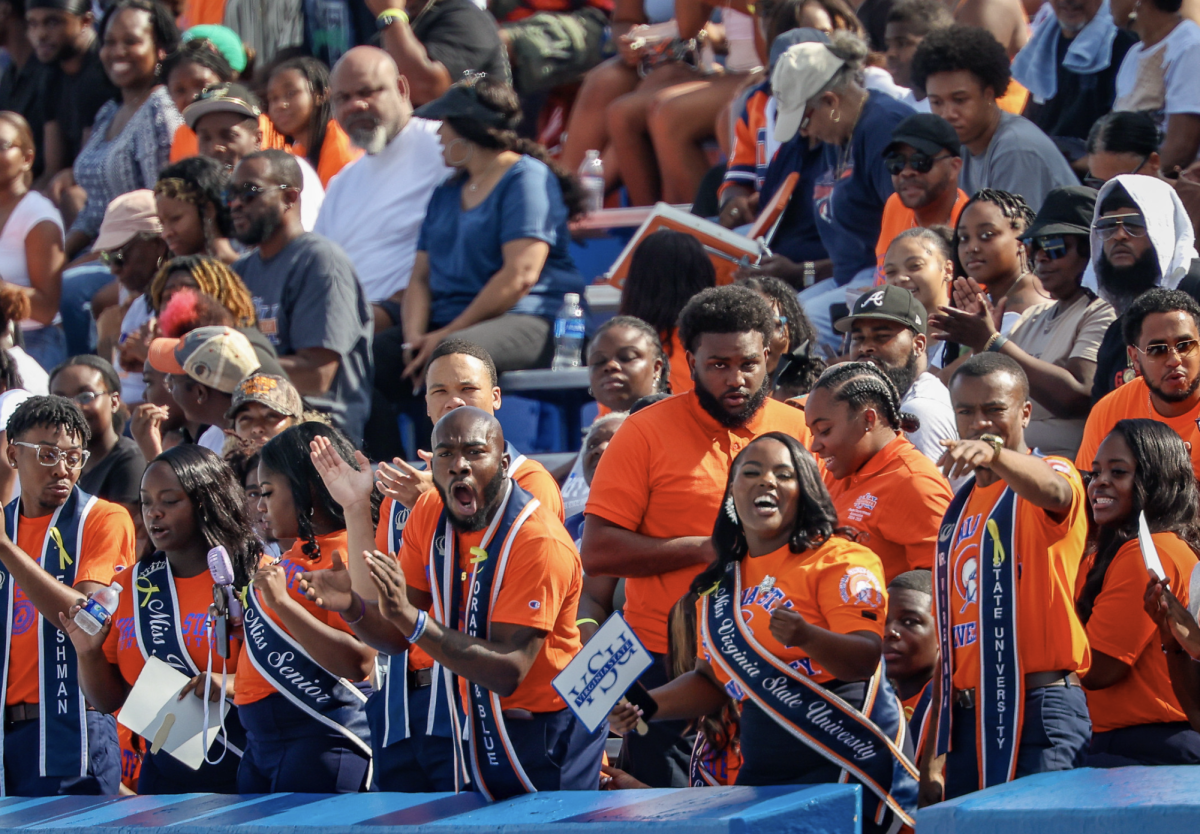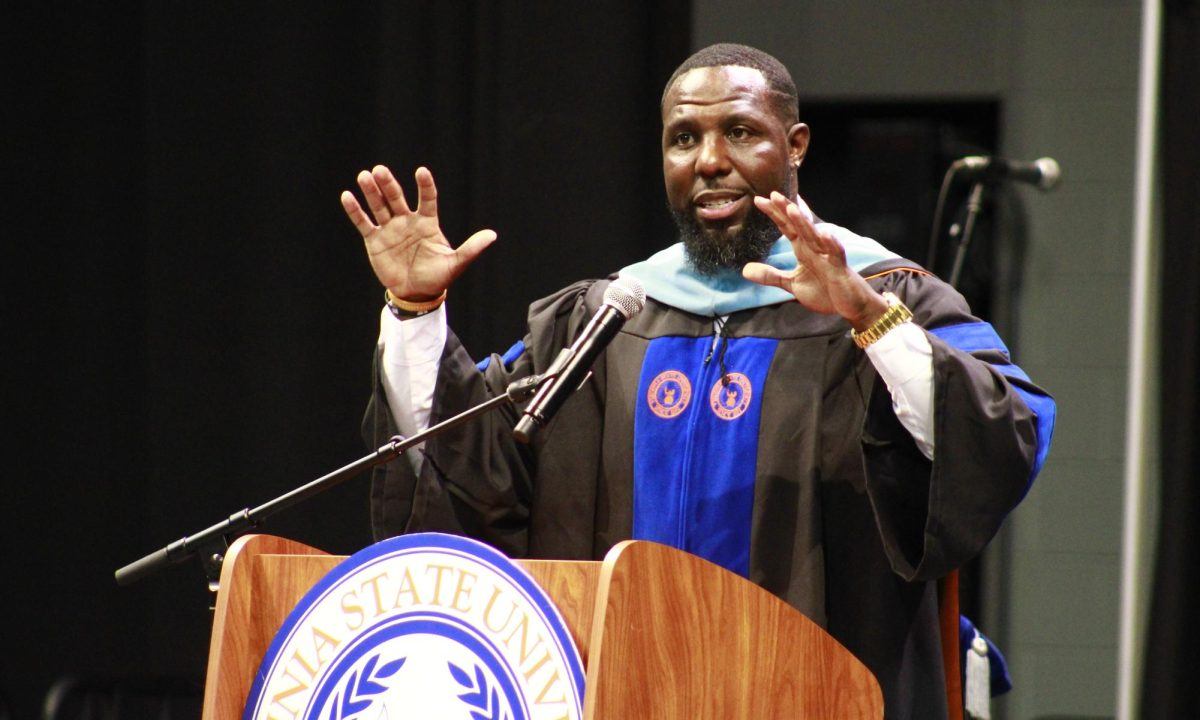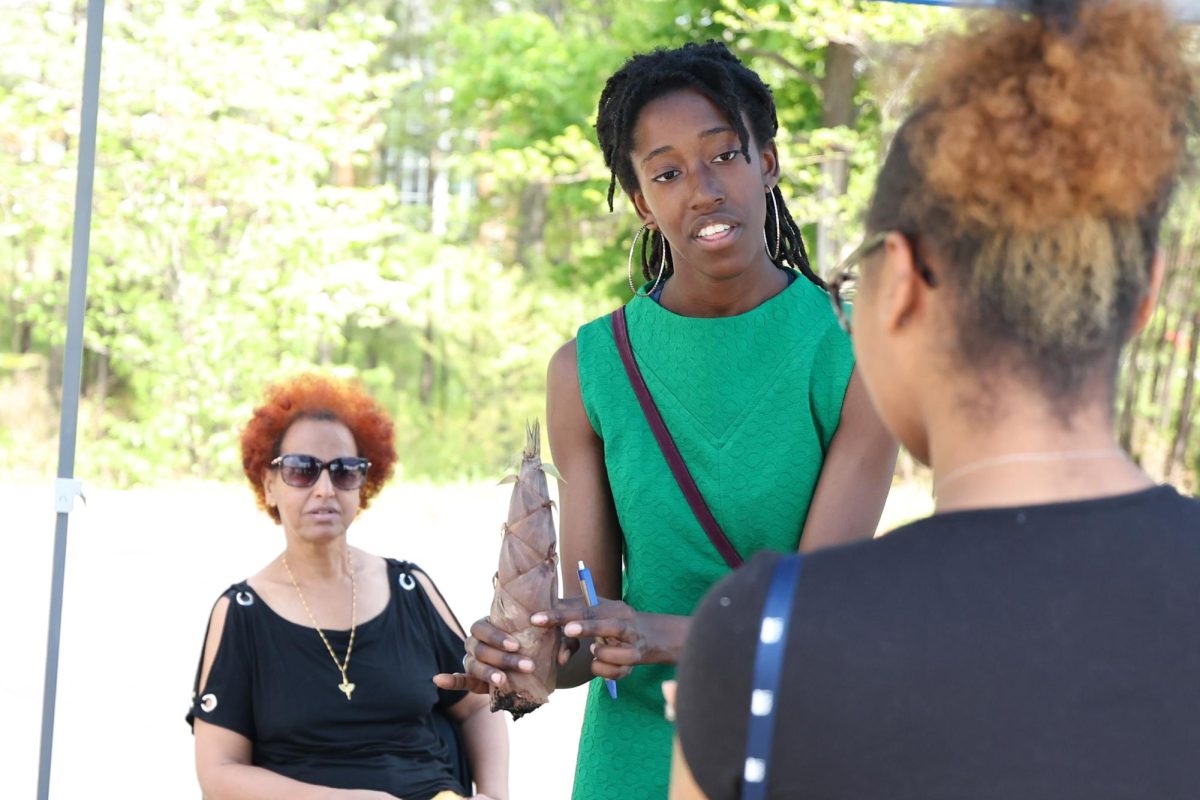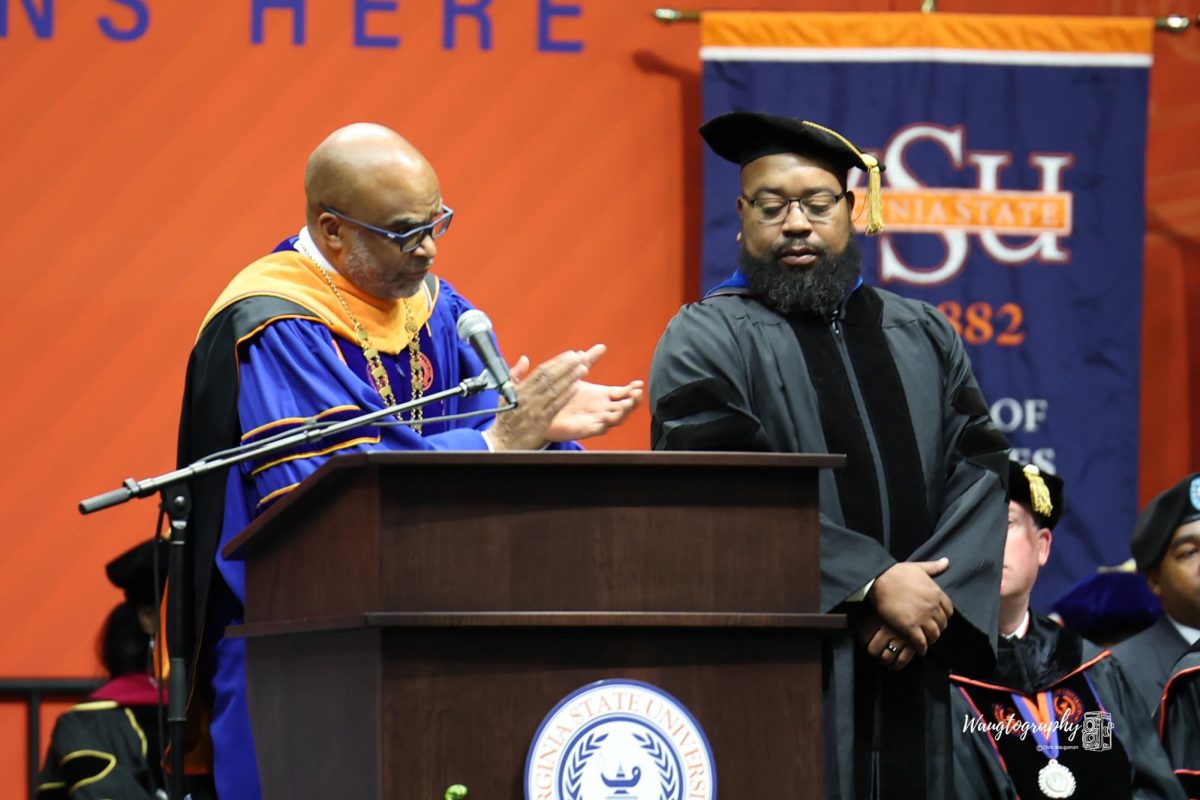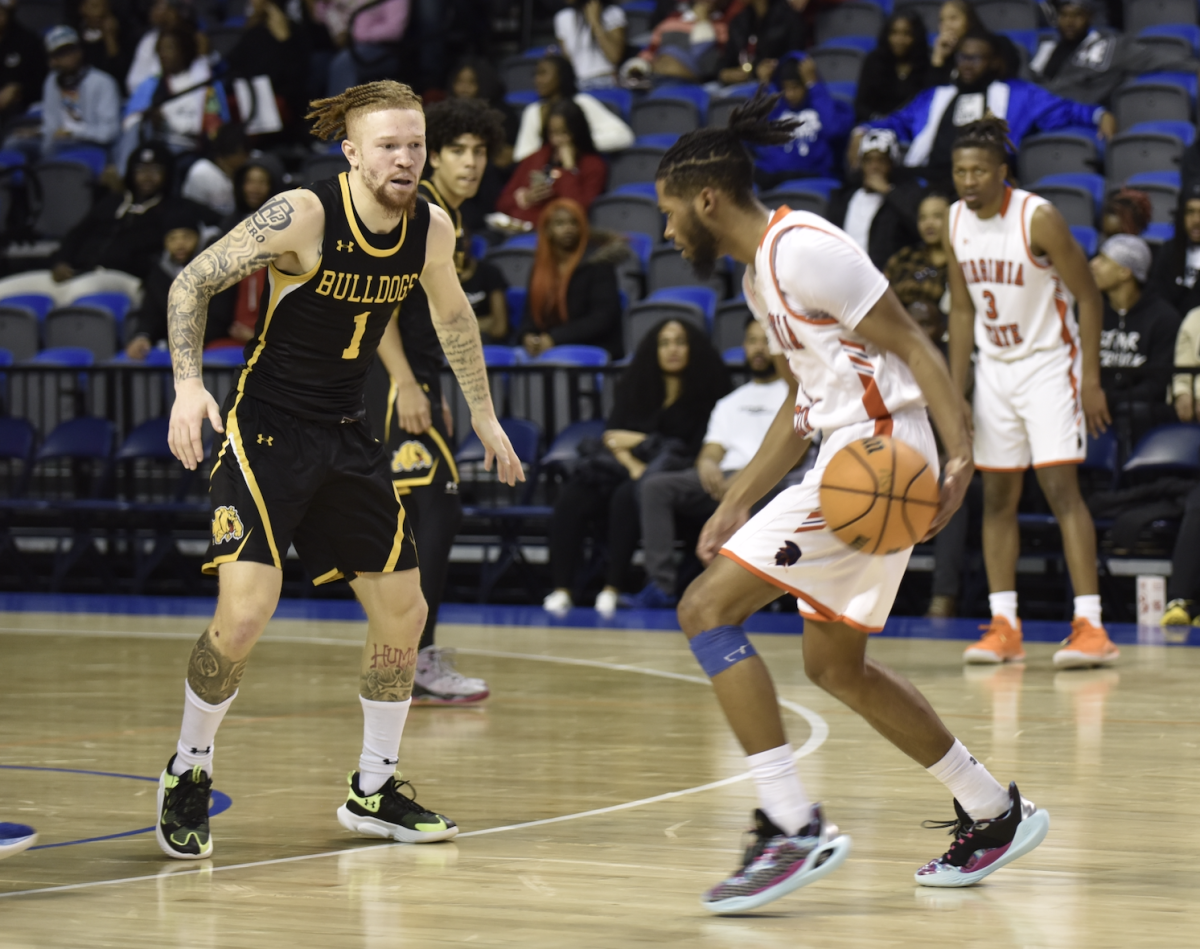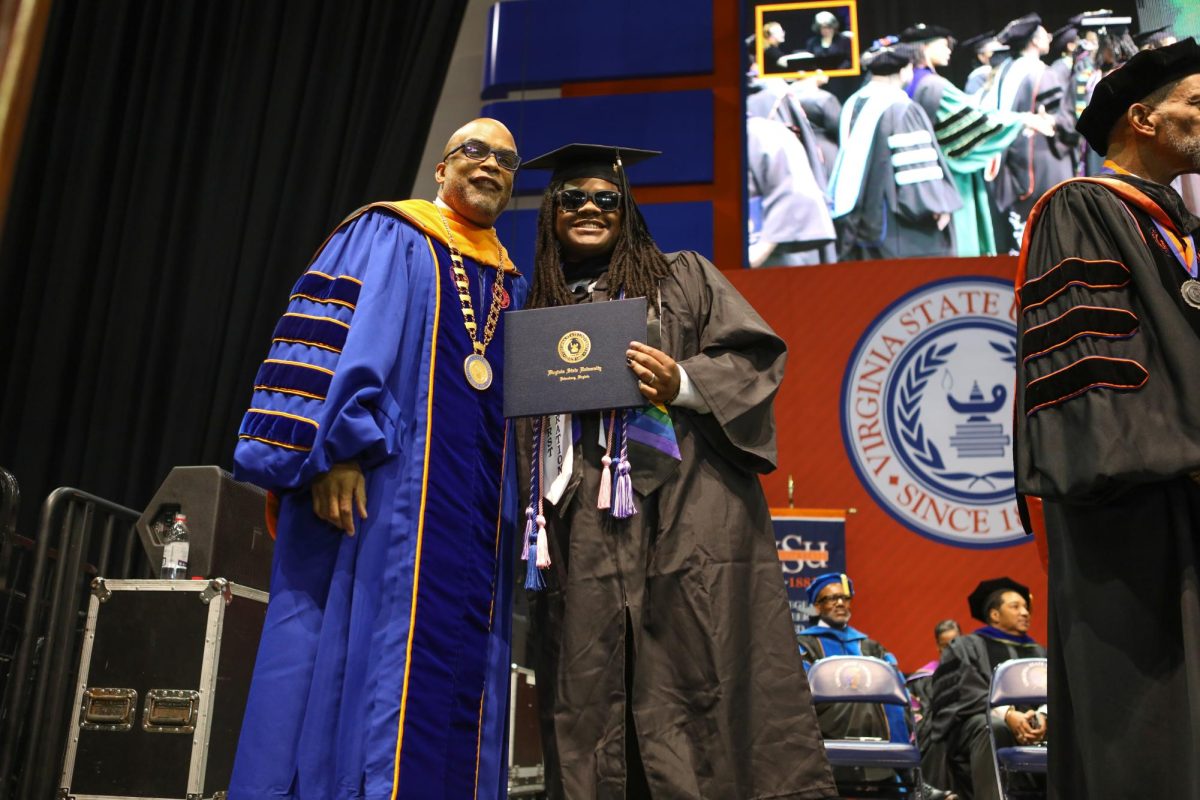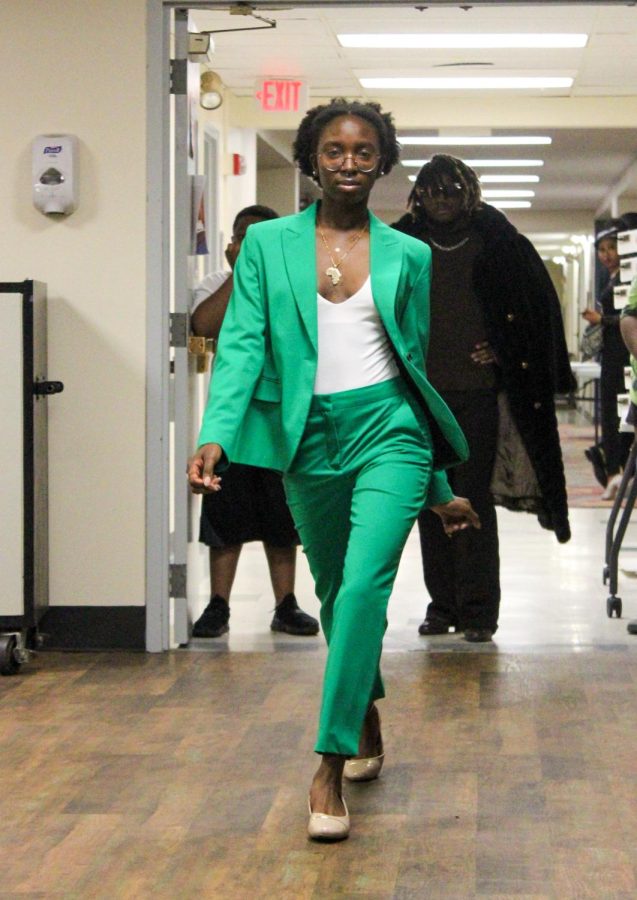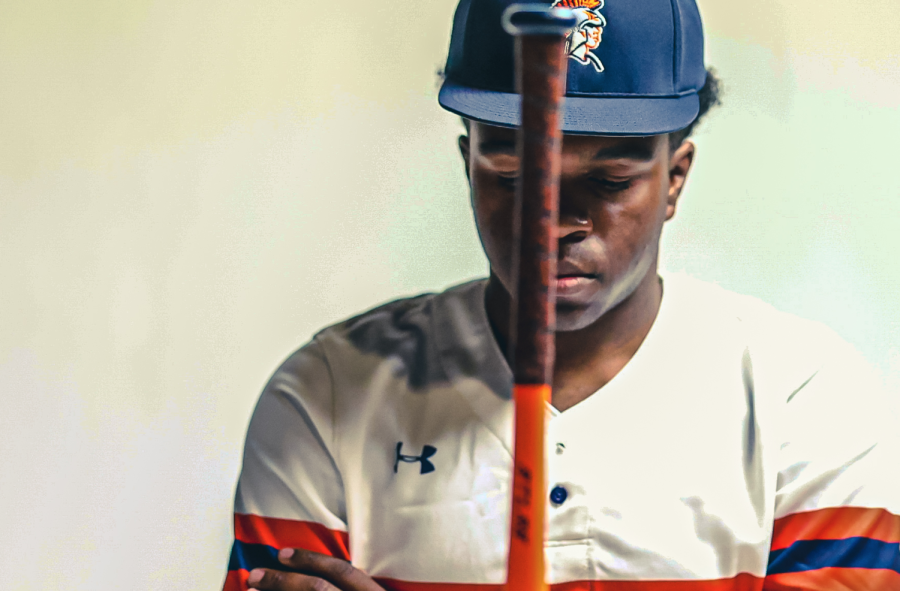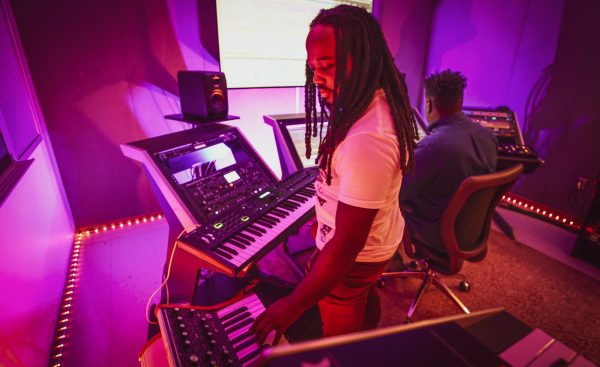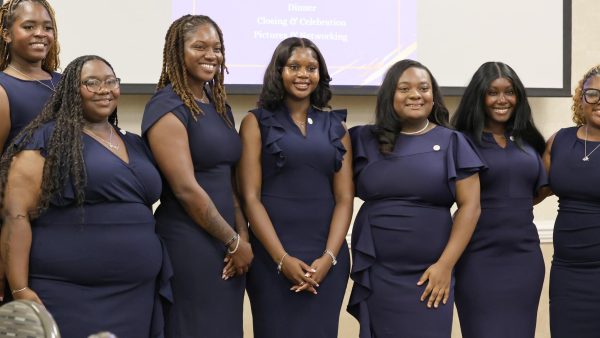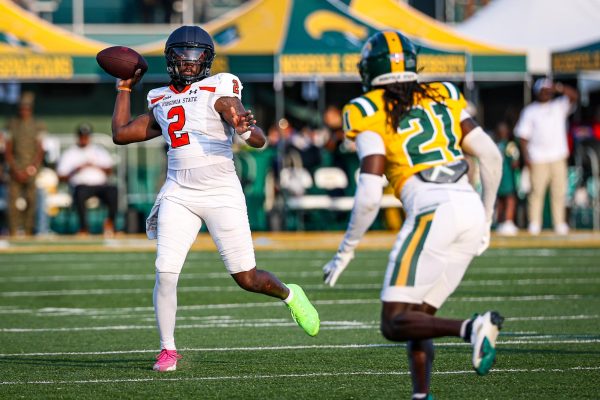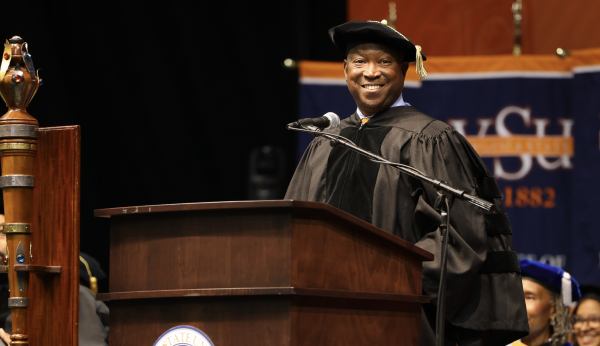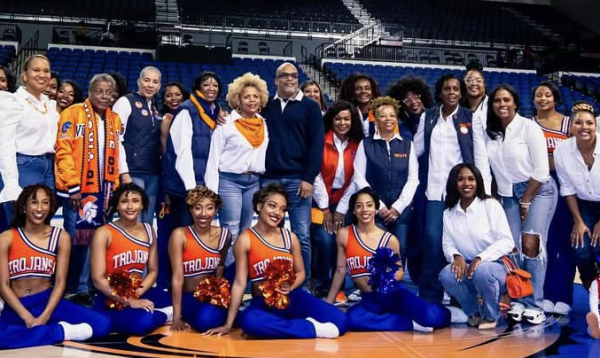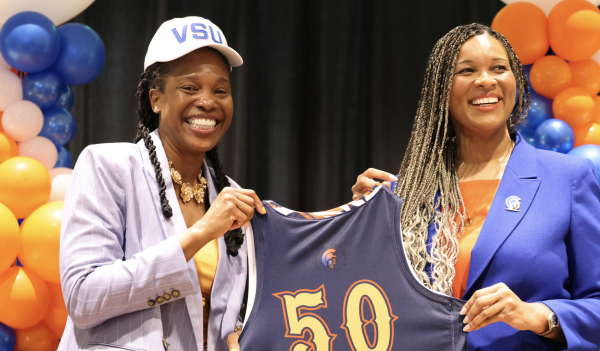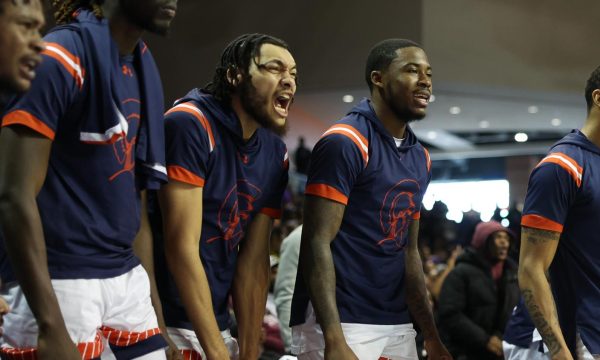Trojan overcomes traumatic injury
Freshman Alex Dayle continues to play sport he loves despite emergency brain surgery
Trojans baseball player Alex Dayle has overcome a traumatic brain injury to return to play the sport he loves. Photo by Virginia Statesman staff.
Freshman Alex Dayle continues to play sport he loves despite emergency brain surgery
Imagine you are 16 and you are in the height of the pandemic. You live in the Big Apple, Harlem, Manhattan, New York City but you are a private school kid trying to make the best out of the world shutting down.
You realize your high school years have been disrupted but your mom instilled the promise and expectation of going to college. Following in your mother’s footsteps, you want to attend an HBCU and you are excited because it will finally allow you to be surrounded with students, professors, and staff that look like you and come from a multitude of places.
Meet Alexander Dayle, a freshman accounting major at VSU. This is his story that begins with a love for baseball and a dream to attend an HBCU.
He took to baseball easily, much more than basketball or football, and he developed a strong passion for the sport.
He has played many years for many teams and before even being accepted to VSU he spoke with Coach Merrill Morgan and explained his ambition to play at the college level. That conversation led to Dayle becoming a walk on player for the team. Number 21 – 1st baseman.
And then something changed.
On a warm summer night, on the final day of August 2021, Dayle was with a few friends at an outdoor fastpitch park having fun and hitting some balls. Dayle delivered the pitch to his friend who connected with the ball and it was a line drive that came directly back towards him. He was unable to get out of the way in time and was hit by the high speed ball on the right side of his skull.
His friends were frantic. They were simply at a public park, not the type of batting cages with employees and staff prepared for an emergency.
“I was on the floor for a good 20 minutes,” Dayle said. “I couldn’t stand up because I was so dizzy and I had this booming headache.”
Dayle was eventually able to get up and his friends called him an Uber home. Dayle was throwing up all night and couldn’t sleep. It was Dayle’s younger brother who finally told their mother something was wrong with him. After no relief for several hours, the family made the decision to go to the hospital.
“[The physicians] basically said, in layman’s terms, you either need brain surgery now or in five minutes…” said Dayle. “So, clearly, [I] didn’t have much of an option so, we had to prepare for me to get brain surgery.”
Dayle is very grateful to the team that performed the surgery. He says they did such a good job that the scar isn’t even visible beneath his rugged, stylish curls.
Dayle suffered from what is called a Traumatic Brain Injury (TBI). The Centers for Disease Control and Prevention (CDC) defines a TBI as, a bump, blow, or jolt to the head, or penetrating injury (such as from a gunshot) to the head.
TBI’s fall into three categories: mild, moderate, and severe. TBIs can have long term effects and also lead to death in severe cases. In mild and moderate cases a warning sign is often a throbbing headache. A concussion is classified as a TBI and can be caused simply by a fall that jolts the brain. Swelling can occur in the brain as well as bleeding which needs to be relieved.
Fortunately, for Dayle, he and his family acted quickly enough to prevent long term damage and he was able to make a full recovery.
After traumatic events like getting hit in the skull with a speeding baseball and having to have immediate brain surgery, many people are petrified of being exposed to the event again. Others meet the experience head-on and refuse to let the event paralyze them from enjoying life. This is especially true when people have a passion for a sport or event that led to the injury.
This has been the case for Dayle. His determination and love for baseball has not been deterred by the jarring experience. He is excited to be a member of the Trojan baseball team and fully participates though he does use caution.
“Obviously I’m never throwing in batting practice again. I’m not risking it’ said Alex. “ It didn’t change my outlook. It’s not a fear. If anything, it made me more hungry to get back out there.”
https://www.cdc.gov/traumaticbraininjury/get_the_facts.html
Your donation will support the student journalists of Virginia State University. Your contribution will allow us to purchase equipment and cover our annual website hosting costs.

